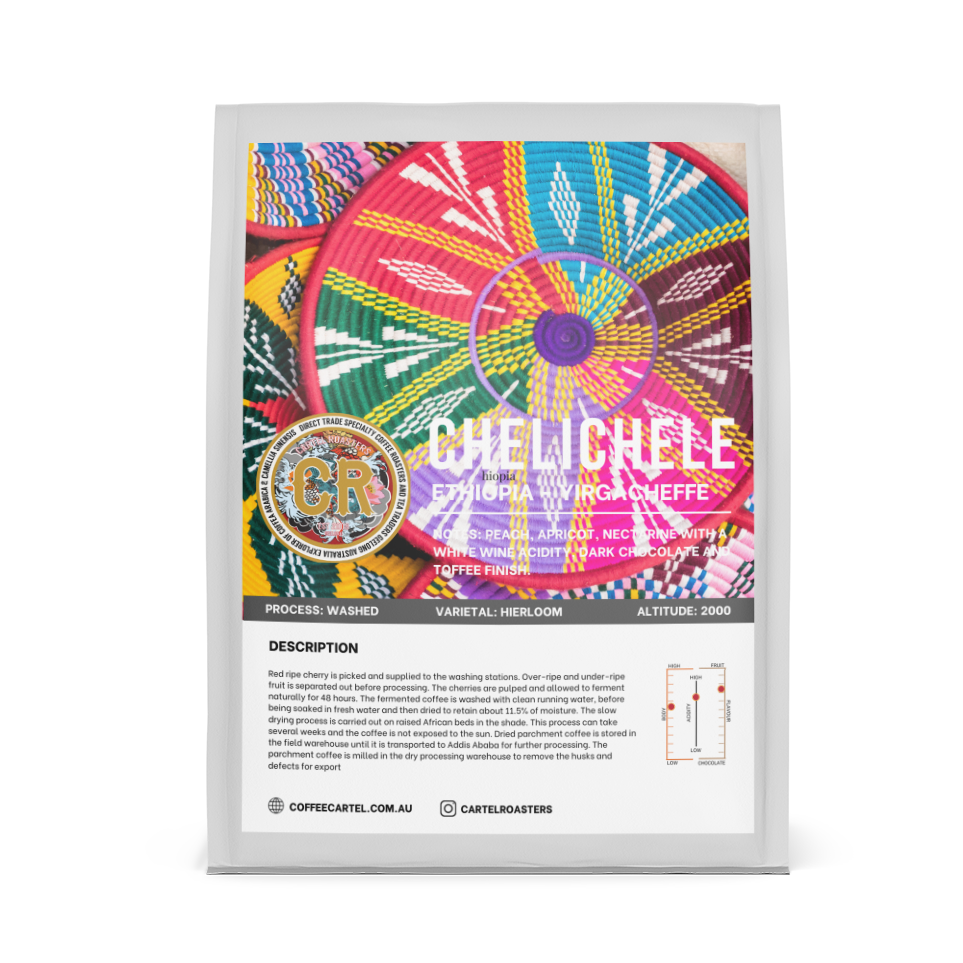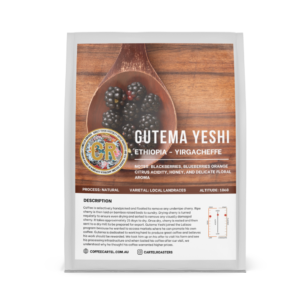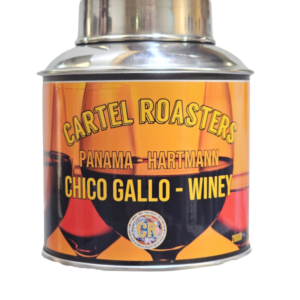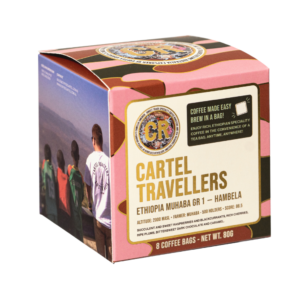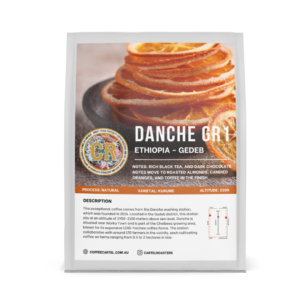About this coffee
- Altitude: 2000
- Farmer: CHELICHELE
- Score: 86.5
- COUNTRY: ETHIOPIA - YIRGACHEFFE
NOTES: PEACH, APRICOT, NECTARINE WITH A WHITE WINE ACIDITY, DARK CHOCOLATE AND TOFFEE FINISH.
This coffee comes from the world famous washing-station partners at Chelchele, which is in the kebele, or village, of Chelchele, in the woreda, or district, of Kochere, in the Yirgacheffe region we have a range of delicious well prounounced distinctive yirgacheffe’s this year and love the support and reviews of these coffees. Its definitely a great year to appreciate these coffees. Get online and indulge in quality coffee.
Red ripe cherry is picked and supplied to the washing stations. Over-ripe and under-ripe fruit is separated out before processing. The cherries are pulped and allowed to ferment naturally for 48 hours. The fermented coffee is washed with clean running water, before being soaked in fresh water and then dried to retain about 11.5% of moisture. The slow drying process is carried out on raised African beds in the shade. This process can take several weeks and the coffee is not exposed to the sun. Dried parchment coffee is stored in the field warehouse until it is transported to Addis Ababa for further processing. The parchment coffee is milled in the dry processing warehouse to remove the husks and defects for export
Coffee still grows wild in Ethiopia’s mountain forests. Ethiopian farmers cultivate coffee in four different systems, which include forest coffee, semi-forest coffee, garden coffee and plantation coffee. About 98% of the coffee in Ethiopia is produced by peasants on small farms and it is the country’s most important export. Ethiopia is Africa’s third largest coffee producer. There are about 700,000 coffee smallholders in Ethiopia, of which 54 percent are in semi forest areas. Coffee has been part of their indigenous cultural traditions for more than 10 generations.
Coffee is traded on the Ethiopian Commodities exchange (ECX) which unique to many other countries sets its own prices. Ethiopia Produced 7.1 Million Bags of Coffee in 2017-2018. Most Ethiopian Coffee goes to Germany and Saudi Arabia (about 20% Each) while Australia takes 2%. While most coffee does go through the ECX, reforms recently passed by the government have allowed larger farms and co-ops to market and sell their coffees directly to consumers, resulting in increased traceability and fairer pricing
Such a good coffee, good body, nice acidity, complex flavours and sweet. My only regret is not buying more. I was so sad when this bag ran out.

